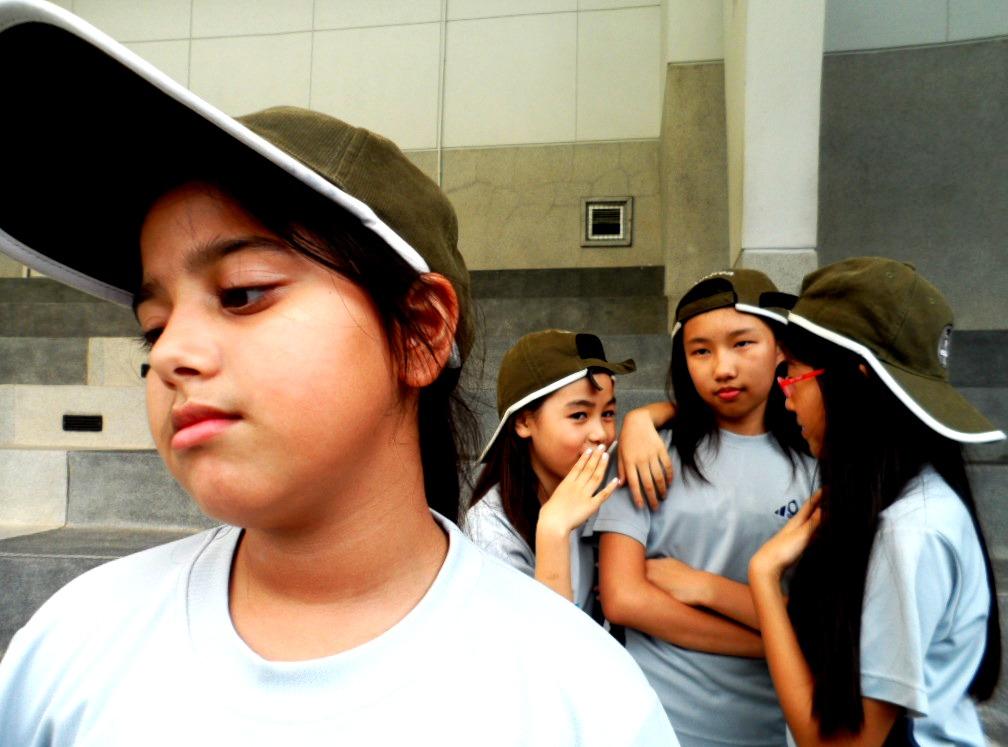‘Bully’ rating controversy shows inner workings of movie ratings system
The film “Bully” portrays the intense reality of the lives of bullied children. (Photo by nist6ss via Flickr Creative Commons.)
The director and studio behind the documentary “Bully” won their battle to have the movie’s rating lowered from the restricted R-rating down to PG-13.
Even though it doesn’t have any explicit sex scenes or extreme violence, “Bully,” a documentary about kids being bullied, was deemed more risqué than “The Hunger Games,” a film about kids killing kids.
Ethan Noble, chairman of Motion Picture Consulting, helps filmmakers and studios get the ratings that they want.
He said that looking at the film as a whole, there’s no way it should have gotten an R-rating from the Motion Picture Association of America in the first place.
“It was kind of obvious. The MPAA standards are pretty unclear when it comes to what causes certain ratings in a lot of cases, but unfortunately, they have a clause that if you have more than one or sometimes two uses of a stronger expletive, it pushes it into R,” he said.
“Bully” was rated R for uses of the F-word by bullies in the film. Though The Weinstein Co., which produced the film, fought to change the rating of the film, Noble said the filmmakers and the studio had to trim some of the language in the film to get their PG-13 rating. The company had to cut three uses of the F-word from the film, but was able to keep intact the film’s most crucial scene, which shows a teen being bullied and harassed on a bus.
“We kind of got a waiver on the number of uses of the F-word in the film,” Noble said.
Noble believes the MPAA rating system itself is strong, but needs some re-evaluation.
“It’s a system of the people. You look at other countries and it’s strictly censorship. Before the system even came into play, it was local towns and communities deciding what was appropriate and what was not,” Noble said.
According to Noble, certain corrections need to be made to correspond with changing society norms and values.
“Language is a perfect example,” Noble said. “Kids are hearing and saying these words in middle school, or younger every single day. This movie is about a kid in middle school that has said he hears this word 50 times a day, and for the MPAA to say that he can’t go and see the movie himself, is kind of ridiculous. I think they need to adjust to the way society really is, what kids are really hearing, and what they’re exposed to.”
However, he stresses there are good points to the system.
“It’s in place to inform parents, and leaves the decision in the parents’ hands. It’s an issue when it comes down to a filmmaker having to make creative decisions because a film can be so incredibly restricted because of what content they consider adult content when sometimes it isn’t. And it’s something these kids live through.”
The MPAA hires parents to view films and give them a rating they feel the film deserves.
The main issue, Noble said, comes from the fact many parents rate the films based on how they think others parents will feel, and not necessarily on how they would truly rate it.
“They say, ‘Oh, I know parents are going to be mad about that,’ or, ‘ I know they’re going to be upset about that.’ In reality, they may not be upset about it. They’re basing their decisions on what they think other people feel, and it’s a flaw in the system,” he said.
Noble explained that the system is built so it can correct itself with an appeals system.
“If you disagree with their rating, you can either make trims to the picture to be able to resubmit it, or you go through an appeal, which is a separate board made up of the member companies of the MPAA, exhibitors and distributors. Bully lost its initial appeal by one vote, which led to the language edits
Noble suggested the MPAA expand its reach by holding research screenings around the country to figure out exactly what parents and kids are exposed to and what content should be allowed in films of certain ratings.
“I think they need to go out to be able to make better decisions based on films as a whole,” he said.
